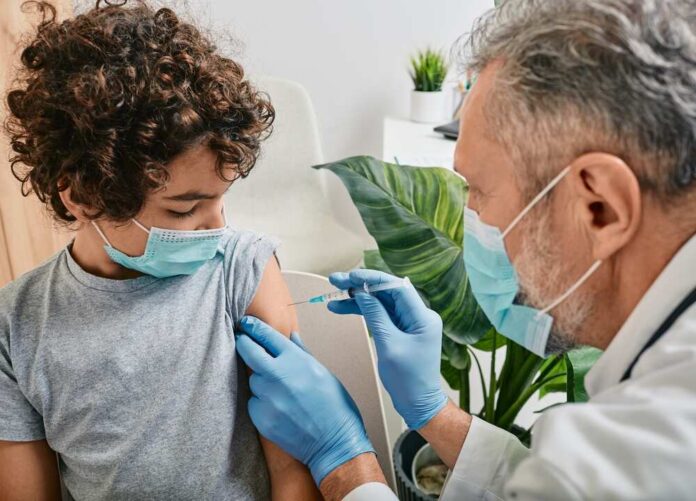
The Centers for Disease Control and Prevention (CDC) has updated its immunization schedule to include routine COVID-19 vaccination for children, despite multiple studies showing children face a much lower risk from the virus.
Time for Congress to stop this insanity.
CDC adds Covid shots to list of routine vaccines for kids and adults | Daily Mail Online https://t.co/Bvthr84fgE
— Laura Ingraham (@IngrahamAngle) February 10, 2023
According to The Daily Wire, officials at CDC are now recommending that children between six months and 15 months, as well as children who are 18 months and older, receive a two-dose or three-dose main series and booster. The public health agency also recommends three-dose series for moderately or severely immunocompromised children.
Does the CDC realize putting the COVID-19 vaccine on the immunization schedule makes parents doubt ALL the vaccines on the schedule?
The data justifying it for kids is incredibly weak. There are far too many safety signals and far too little benefit. This is criminal. 👇 pic.twitter.com/F5JXvRb9oc
— AConcernedParent (@AConcernedPare2) February 10, 2023
Children who are over six months old can receive the Moderna vaccine or the Pfizer-BioNTech vaccine, while Children who are 12 years and older are eligible to receive the Novavax vaccine.
Reports on PJ Media suggested the CDC’s new schedule will give schools the political cover they need to mandate vaccination for students before they are allowed to attend classes. The long-term effects of COVID-19, as well as for the vaccination for the virus, are still unknown, both in children and adults.
🚨URGENT — CDC Deputy Director Dr. Tom Shimabukuro Admits COVID-19 Vaccines Are Causing Many "Debilitating” And Long Lasting Side Effects
"We are aware of these reports of people experiencing long-lasting health problems following COVID-19 vaccination, we hope for improvement" pic.twitter.com/vFOmie5vyY
— James Cintolo, RN FN CPT (@healthbyjames) February 8, 2023
A case series published in @NatureMedicine shows an increased risk of myocarditis after receiving the Astra-Zeneca-Oxford, Pfizer-BioNTech and the Moderna COVID-19 vaccines, but SARS-CoV-2 infection carried a greater risk of myocarditis. https://t.co/6y7pZlJN70 pic.twitter.com/cBlKz9sUkg
— Nature Portfolio (@NaturePortfolio) December 14, 2021
There is also a 1-in-5,000 to a 1-in-6,000 chance of myocarditis in young males between the ages of 16 and 17 who receive the second dose of an mRNA vaccine, according to PJ Media. Studies showed that fully vaccinated adults of any age are at a higher risk of dying from COVID than unvaccinated children.
CDC Director Walensky falsely tells Congres that there have been “2,000 pediatric deaths from COVID-19” and explains that the only reason COVID vaccines were added to the child immunization schedule was so they could be given to uninsured children.pic.twitter.com/rld9bmFCsF
— Michael P Senger (@MichaelPSenger) February 9, 2023
The Wall Street Journal, in a 2021 report, revealed that children are at very minimal risk of falling seriously ill or dying from COVID-19. Researchers showed in one study that over 99% of the 469,000 children who had the virus during the year survived.














